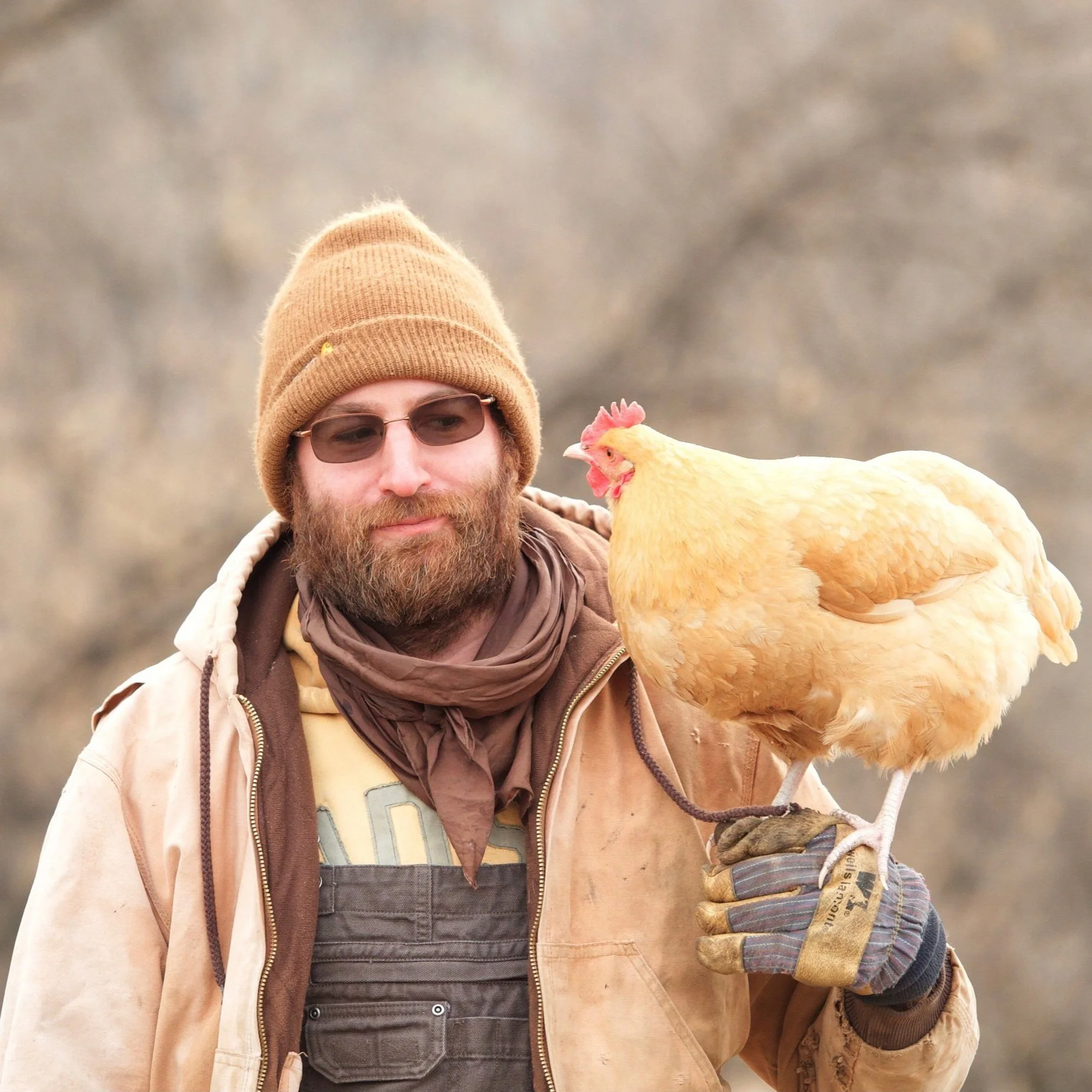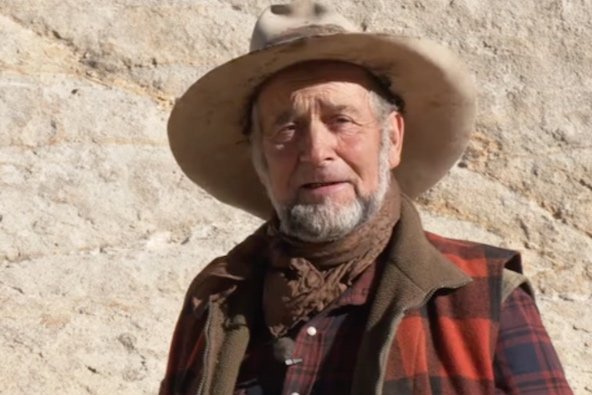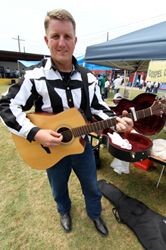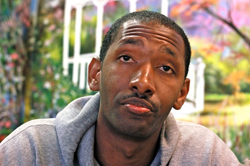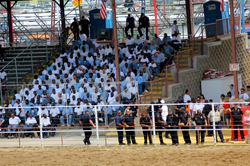In the Footsteps of John Lomax: Angola Prison
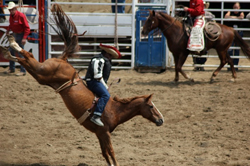 The very first thing that happened at the rodeo Hal and I attended on Sunday involved four cowboys on four bulls, all set free at the same moment and holding on for dear life. It’s called the Angola Bust Out…and a pun IS intended…because Angola is a prison. Formally known as the Louisiana State Penitentiary, and informally as The Farm, Angola is the nation’s largest prison with over 5,000 inmates, most of whom are serving life sentences. A few times a year, the gates are swung open and the public is invited to attend a rodeo that features inmates competing in various events. Our visit to Angola was the culmination of a week-long field trip tracing America’s ballad hunter, John A. Lomax, on some of the paths he took in the 1930s and ‘40s combing the South in search of folk songs. Some of his most fruitful collecting came from prisons, including Angola where he recorded the famous songster, Leadbelly.
The very first thing that happened at the rodeo Hal and I attended on Sunday involved four cowboys on four bulls, all set free at the same moment and holding on for dear life. It’s called the Angola Bust Out…and a pun IS intended…because Angola is a prison. Formally known as the Louisiana State Penitentiary, and informally as The Farm, Angola is the nation’s largest prison with over 5,000 inmates, most of whom are serving life sentences. A few times a year, the gates are swung open and the public is invited to attend a rodeo that features inmates competing in various events. Our visit to Angola was the culmination of a week-long field trip tracing America’s ballad hunter, John A. Lomax, on some of the paths he took in the 1930s and ‘40s combing the South in search of folk songs. Some of his most fruitful collecting came from prisons, including Angola where he recorded the famous songster, Leadbelly.
I’m not a rodeo aficionado by any means, but this one was remarkable to me in many ways, primarily because of how “normal” and unremarkable it felt. Here we were wandering the grounds with hundreds of prisoners all around us, working the concessions, selling art and “hobbycrafts,” and performing music on several stages. All these men were convicted felons, but had achieved the status of “trustee,” which meant they could interact with the public (under the watchful eye of security). We interviewed several musicians throughout the day, many of whom had been there for decades, and who would never leave the confines of Angola; there is no parole for a life sentence in Louisiana.
Each and every person we spoke with was thoughtful, articulate and fascinating. It seems that their incarceration had forced them to come to terms with their past and their future in ways the rest of us rarely do. Maybe we’re just too busy with the responsibilities and distractions of daily life to philosophize like they do. We met Wayne, the young man who’d been asked to sing the national anthem at the rodeo, who was so humbled by this honor that he’d studied the words and thought deeply about the sacrifices made by America’s soldiers to secure the freedoms we enjoy as Americans, even though he’d forfeited his right to those same freedoms.
We also met Michael, a 27-year-old who writes and performs gospel rap songs, but who previously had rapped about his life on the streets as a “gangsta.” His new songs were positive and upbeat as was his conversation, but at one point he hinted at his sense of frustration and hopelessness in the early days of his incarceration. After we followed up on this point he took a deep breath, paused, then told us in detail about the night he attempted to commit suicide, and how the only reason he’s still alive is because he couldn’t find a place from which to hang himself. He then went on to talk about finding a bible that same night, and beginning his conversion to dedicating his life to studying the teachings of Christ. Because the rodeo was so loud, I had to get very close to him with the microphone, and I’ll never forget how his eyes locked on mine as he explained his ordeal. I don’t think I blinked for five minutes.
We spoke with many other prisoners that day and—to a man—I found their stories moving. And this leads to perhaps the biggest surprise in spending time with these inmates: my own reaction. I generally believe in being tough on crime, yet here we were with convicted felons…and not only did I feel comfortable, I felt compassion and empathy. On an intellectual level, I know these people have committed crimes, and that these crimes involved victims..some of whom may not have survived the incident. This is one of those experiences that’s going to take a while to process…and as crazy as it may sound… I look forward to my next visit to prison.
Taki Telonidis

